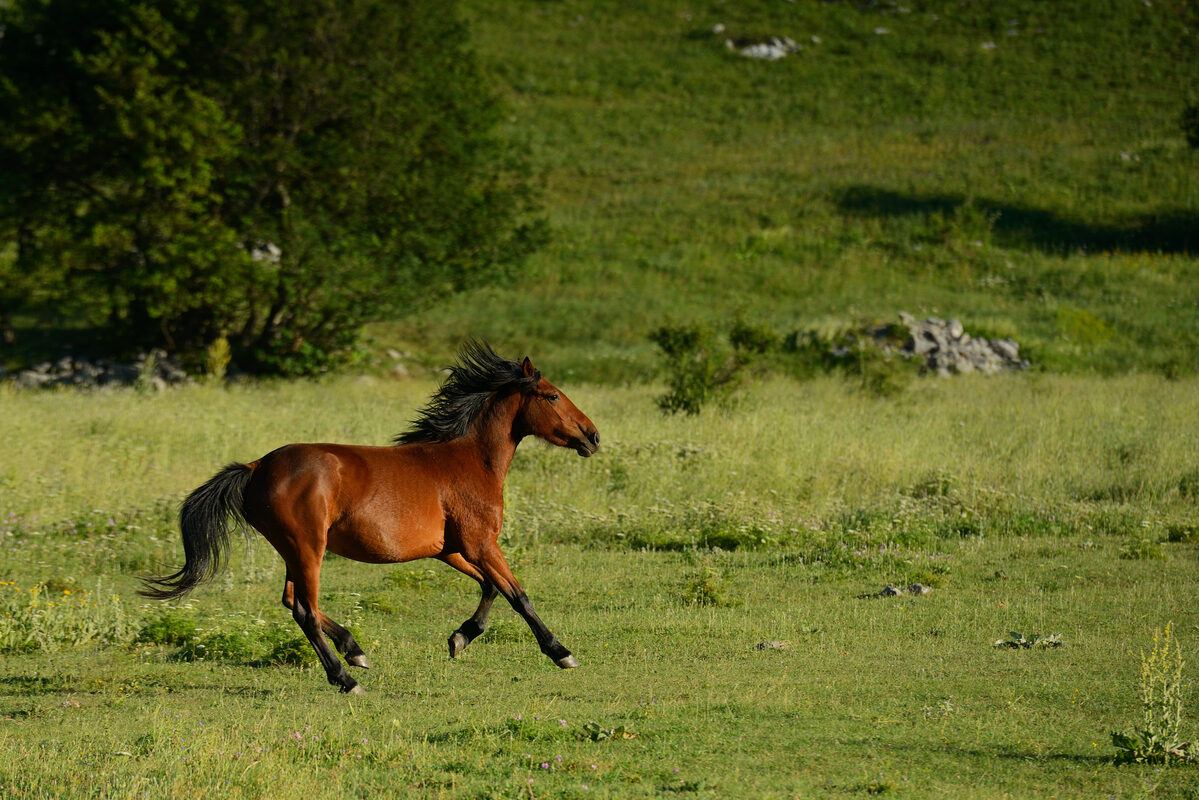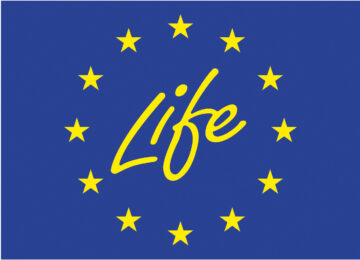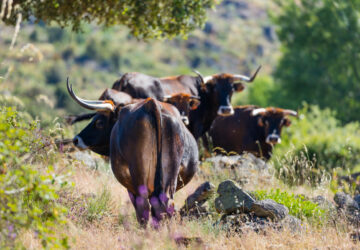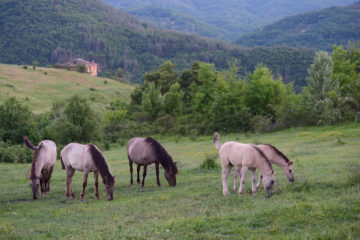As a critical natural process, grazing by large herbivores delivers many benefits to both wild nature and people. Yet, its impact depends greatly on the type of herbivores and grazing intensity. Join us for an online symposium on December 9th where we will present the findings of the three-year GrazeLIFE programme.

Challenges and solutions

GrazeLIFE was set up on request of the European Commission to identify best practices on grazing for ecosystem services, wildfire prevention, biodiversity and landscape management. With a more volatile climate placing greater pressures on terrestrial ecosystems, the role of large herbivores can contribute greatly as a solution for many of these problems.
They can shape landscapes by creating dynamic mosaics of habitat better suited to these unpredictable times. Natural grazing carries with it a transformative power to enhance trophic complexity and boost wildlife diversity. It can assist carbon capture, reduce the risk of wildfires, improve water storage and soil protection, and eliminates the use of chemicals and the need for imported animal feed that you find in intensive agriculture.

A new framework for change
But progress is currently hindered by a lack of political support and an overly bureaucratic system that does little to incentivise this greener approach to grazing. The webinar hosted by Rewilding Europe will delve into the fascinating findings of GrazeLIFE, of which Rewilding Europe has been the lead partner. The final report’s 45 recommendations are based on practical experiences from sites across Europe, and it is hoped this will lay the foundations for a new natural grazing paradigm to be rolled out at scale across the continent.
Sharing knowledge

The webinar will bring together GrazeLIFE representatives from across Europe, who will share their findings and proposed solutions to achieving more sustainable grazing models in which wildlife and people experience the benefits. This knowledge exchange will be of great interest to practitioners and policy-makers, as each country grapples with the twin crises of climate change and biodiversity loss.
Wouter Helmer, leading GrazeLIFE on behalf of Rewilding Europe, will begin with an introduction. This will be followed by a look at effective grazing systems and key recommendations for improving European and national policies and legislation. “At the ‘Grazing for Life’ symposium we will make clear how the EU, its Member States and practitioners can each take responsibility in applying more natural grazing practices, as these appear to serve the public good the most, of all subsidized land uses”, Wouter explains.
The webinar will also hear from two case studies – one in the Rewilding Europe rewilding area of the Rhodope Mountains in Bulgaria – and the other from Galicia in Spain. Both will paint a vivid picture of the political challenges faced when landowners and other practitioners want to start natural grazing. Wouter Helmer will conclude the event with a thought-provoking look at the follow-up actions required on a regional and national level to make ‘Grazing for Life’ the norm across Europe for decades to come.
Learn more about the event and register now
